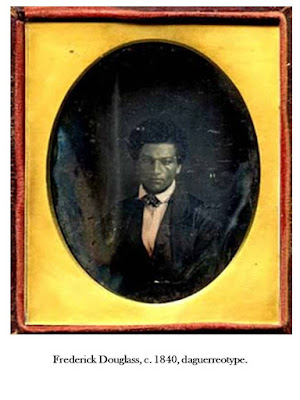 The son of a classmate of a close friend of mine committed suicide recently.
What awful feelings of hopelessness and despair must have filled his waking
thoughts until he made his terrible, fateful decision to end his pain. I talk about suicidal children in my 19th century
black literature classes--two texts that I teach are Frederick Douglass's Narrative and Harriet E. Wilson's autobiographical novel, Our Nig respectively (see links below for the complete texts). In each, we see the despair and the traumatizing effects and feelings of helplessness and hopelessness that our ancestors bore, even as young children.
The son of a classmate of a close friend of mine committed suicide recently.
What awful feelings of hopelessness and despair must have filled his waking
thoughts until he made his terrible, fateful decision to end his pain. I talk about suicidal children in my 19th century
black literature classes--two texts that I teach are Frederick Douglass's Narrative and Harriet E. Wilson's autobiographical novel, Our Nig respectively (see links below for the complete texts). In each, we see the despair and the traumatizing effects and feelings of helplessness and hopelessness that our ancestors bore, even as young children. For Douglass, the devastating realization that his young, black life
was doomed to enslavement made him contemplate suicide
at the age of twelve: "I often found myself regretting my own existence,
and wishing myself dead; and but for the hope
of being free, I have no doubt but that I should have killed myself, or
done something for which I should have been killed."
For Douglass, the devastating realization that his young, black life
was doomed to enslavement made him contemplate suicide
at the age of twelve: "I often found myself regretting my own existence,
and wishing myself dead; and but for the hope
of being free, I have no doubt but that I should have killed myself, or
done something for which I should have been killed."
Similarly, fourteen year-old Frado, the free Northern black indentured servant (a fictionalized version of Wilson) has suicidal thoughts, which are overheard by James, the sympathetic son of her white mistress: "'Oh!
oh!' I heard, 'why was I made? why can't I die? Oh, what have I to live for? No
one cares for me only to get my work. And I feel sick; who cares for that? Work
as long as I can stand, and then fall down and lay there till I can get up. No
mother, father, brother or sister to care for me, and then it is, You lazy
nigger, lazy nigger—all because I am black! Oh, if I could die!'"
A 2016 article in CNN quotes a study in JAMA Pediatrics, noting : "...black youth may experience disproportionate exposure to violence or traumatic stressors, both of which have been associated with suicidal behavior. Also, research has shown that black youth are less likely to receive services for depression, suicidal ideation, and other mental health problems compared with non-black youth"--click here to read the entire CNN article. The article also notes that the highest youth suicide rates are among Native American youth.